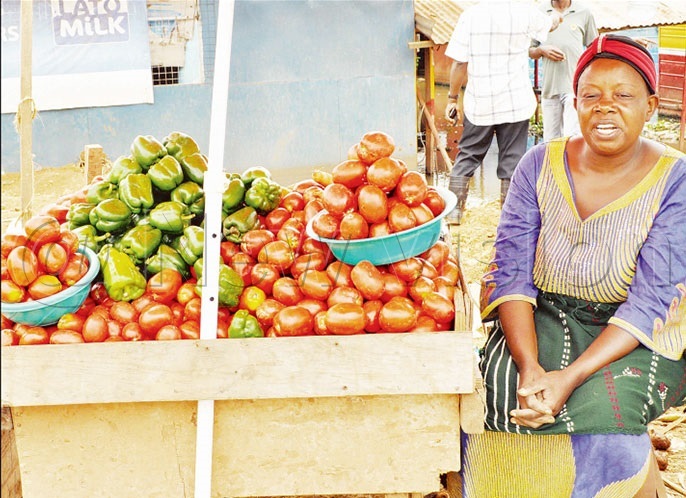Informal sector ripe ground for fintechs, experts say
Innovating for such a market will not only save the women who are facing physical and sexual harassment as they go about their trade, but also holds a huge opportunity for fintechs players to tap into the sh2.8 trillion.
BUSINESS
Financial technology companies (fintechs) have been challenged to spread their wings from the central region, where they mainly operate, to the informal economy across the country.
This, according to trade experts, will not only enhance financial inclusion but also help fintechs to enhance financial processes such as mobile payments, loan provision, bill payments and money transfers to grow their bottom lines.
Speaking during a two-day fintechs landscape exhibition at Sheraton Kampala Hotel recently, Damali Ssali, a trade development expert, said innovating digital tools that target the informal sector, especially the informal cross-border women traders, holds immense potential for both the fintechs and the women.
Quoting a 2018 Bank of Uganda paper that estimated the informal cross border trade at sh2.8 trillion, Ssali said fintechs need to leverage their platforms to catalyse such trade.
Ssali said innovating for such a market will not only save the women who are facing physical and sexual harassment as they go about their trade, but also holds a huge opportunity for fintechs players to tap into the sh2.8 trillion.
"I would like to see e-commerce players be able to leverage their platforms to catalyse such trade. That amount is huge and yet we do not have any e-commerce player targeting them," Ssali said.
She added: "I would be happy to see that 70% of women that are involved in formal cross-border trade do it online because that will help address the many challenges they are facing.
I am sure fintechs would be making a lot of money if they developed innovative solutions to tap into this economy."

The COVID-19 outbreak that saw the Government institute a number of standard operating procedures, including a lockdown and closure of borders, brought informal cross-border trade to a standstill.
If these women had digital financial tools, their businesses would have flourished during the COVID-19 period, given that they mainly deal in foodstuffs, which were on high demand.
Cognisant of the fact that internet penetration in the country is only at about 37%, Ssali urged fintechs to innovate products that target those who do not have access to the Internet.
"You need to innovate for our context; some of our people in the informal cross-border trade use feature phones.
We need to innovate solutions that work on such phones if we are to ensure that the e-commerce platforms are inclusive," Ssali said.
The project
The fintech landscape exhibition sought to mark the end of the 40-days-40-fintechs project, which was organised by HiPipo, in partnership with Crosslake Tech, ModusBox and Mojaloop Foundation.
The fintechs were equipped with interoperability skills, using Mojaloop, a switching platform with a centralised service that brings together digital financial service providers to help boost financial inclusion in Africa.
It is estimated that only about 43% of people in sub-Saharan Africa are financially included. In Uganda, the number is estimated at 78% — both formally and informally.
This is mainly because of high transactional costs, especially across different service providers, which experts say is an obstacle to achieving meaningful financial inclusion.

Currently, providers of digital solutions have to build everything on their own, which is expensive as there is no single loop.
This means that they have to charge high transaction fees that are not affordable for poor customers.
Additionally, more services end up being a closed loop where customers can only transact with other customers using the same service.
Boosting adoption
To boost adoption of digital solutions, Oscar Ofumbi, the Lend in a Box head of business, said there was need for a conducive policy that facilitates adoption.
The Jumo Uganda customer delivery supervisor, Wendy Nanfo, on the other hand, urged fintechs to ensure customer centricity to enhance adoption.
"We need to focus on customer needs; investigate the actions and the artefacts of all the touch points on a customer journey.
Knowing who you are serving helps you understand the data and enables you to provide a product that best suits your customer," Nanfo said.
Nanfo commended HiPipo for the Mojaloop software, saying it will provide an interoperable solution, which is expected to be a gamechanger in the fintechs space as it will provide players with an alternative source of data.
"You need data to be able to serve the person at the bottom of the pyramid. So being able to plug into an API that has data from other sources will help us produce products that best suit our customers," she said.
Daisy Kavinya Mwanzia, the senior manager banking at MTN Group, said Mojaloop had laid a good foundation, which will provide for the simplification of digital financial solutions and thus enhance financial inclusion across the globe.
Cost
The software is expected to lower financial transactional costs, which are currently inhibitive.
The system, according to experts, helps loop digital financial providers and customers together in one inclusive system, making it easy for people to transact using a single account.
Currently, providers of digital solutions have to build everything on their own, which is expensive as there is no single loop and the costs are passed on to the customer.
The HiPipo chief executive officer, Innocent Kawooya, pledged to continue advocating a level playing field for all fintechs to thrive.
He said with an open source software, the operators will be able to create interoperable payment solutions to enhance financial inclusion by breaking all the barriers and create one ecosystem that will benefit everyone.
Kawooya added that the successful execution of the 40-days-40-fintechs project, is expected to change the way financial inclusion is done in the world, transform millions of lives in years to come and change the way financial inclusion will be done in Uganda.
Ofumbi said Mojaloop is helping bring the concept that fintechs need to connect different parties.
Cyber insurance
To minimise cyber risks, Ofumbi said fintechs need to use two-factor authentication but also should consider cyber insurance, which he said will enable fintechs externalise risks.
"The challenge with cyber crime is that it could be perpetuated by an employee or third-party provider.
So, it could be challenging to find out where the problem is but using insurance or two factor authentication would be helpful," Ofumbi said.
The state minister for public service, David Karubanga, commended HiPipo for the initiative, saying it is a step in the right direction as it complements government's efforts in promoting financial inclusion.
Information and communication technology minister Judith Nabakooba pledged the Government's continued support to the growth of the fintechs industry to enable more Ugandans to benefit from the use of digital financial services in their daily lives.
The Pegasus Technologies managing director, Ronald Azairwe, said the Mojaloop open source software would foster uniformity and allow people to contribute through product innovation, cheaply.